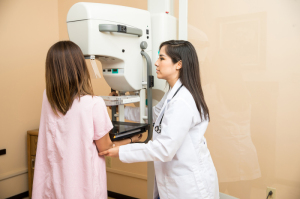by
Lauren Dubinsky, Senior Reporter | November 21, 2017

Challenges the USPSTF's
recommendations
The United States Preventive Services Task Force recommends biennial mammograms but patients prefer annual screening, according to a new study published in Radiology.
"I believe the USPSTF recommendations were so focused on the reported anxiety that an abnormal mammogram may generate, without taking into consideration women's preference," Dr. Ghizlane Bouzghar, chief radiology resident at Einstein Medical Center in Philadelphia, told HCB News.
Bouzghar and her team surveyed 731 women who underwent screening and diagnostic mammograms at Einstein Medical Center in Philadelphia between December 2016 and February 2017.



Ad Statistics
Times Displayed: 68390
Times Visited: 2225 Ampronix, a Top Master Distributor for Sony Medical, provides Sales, Service & Exchanges for Sony Surgical Displays, Printers, & More. Rely on Us for Expert Support Tailored to Your Needs. Email info@ampronix.com or Call 949-273-8000 for Premier Pricing.
The questions pertained to whether an abnormal mammogram or breast biopsy causes emotional harm, whether screening every two years was associated with less or more anxiety, and how often they preferred to be screened.
The team took into consideration the patient's age, ethnicity, family and personal history of breast cancer, prior biopsies and abnormal mammograms, as well as any underlying anxiety disorder.
Seventy-one percent of the women reported that they preferred to get screened every year. The only variables that had an added positive influence on annual screening preference were a family history of breast cancer and a prior breast biopsy.
When the USPSTF issued its controversial mammography screening recommendations in 2009. Groups such as the American College of Radiology, American Cancer Society and American College of Obstetricians and Gynecologists advocated against it.
The agency reaffirmed the recommendations in 2016 — stating that the harms of annual screening outweighed the benefits. Those harms included treating breast cancers that would otherwise not have become a threat to the patient's health, unnecessary biopsies, and the anxiety associated with false-positive results.
"I am not sure how these findings will affect the USPSTF recommendations, but I think they will be invaluable for primary care physicians when having a discussion about screening mammography with their patients," said Bouzghar.

